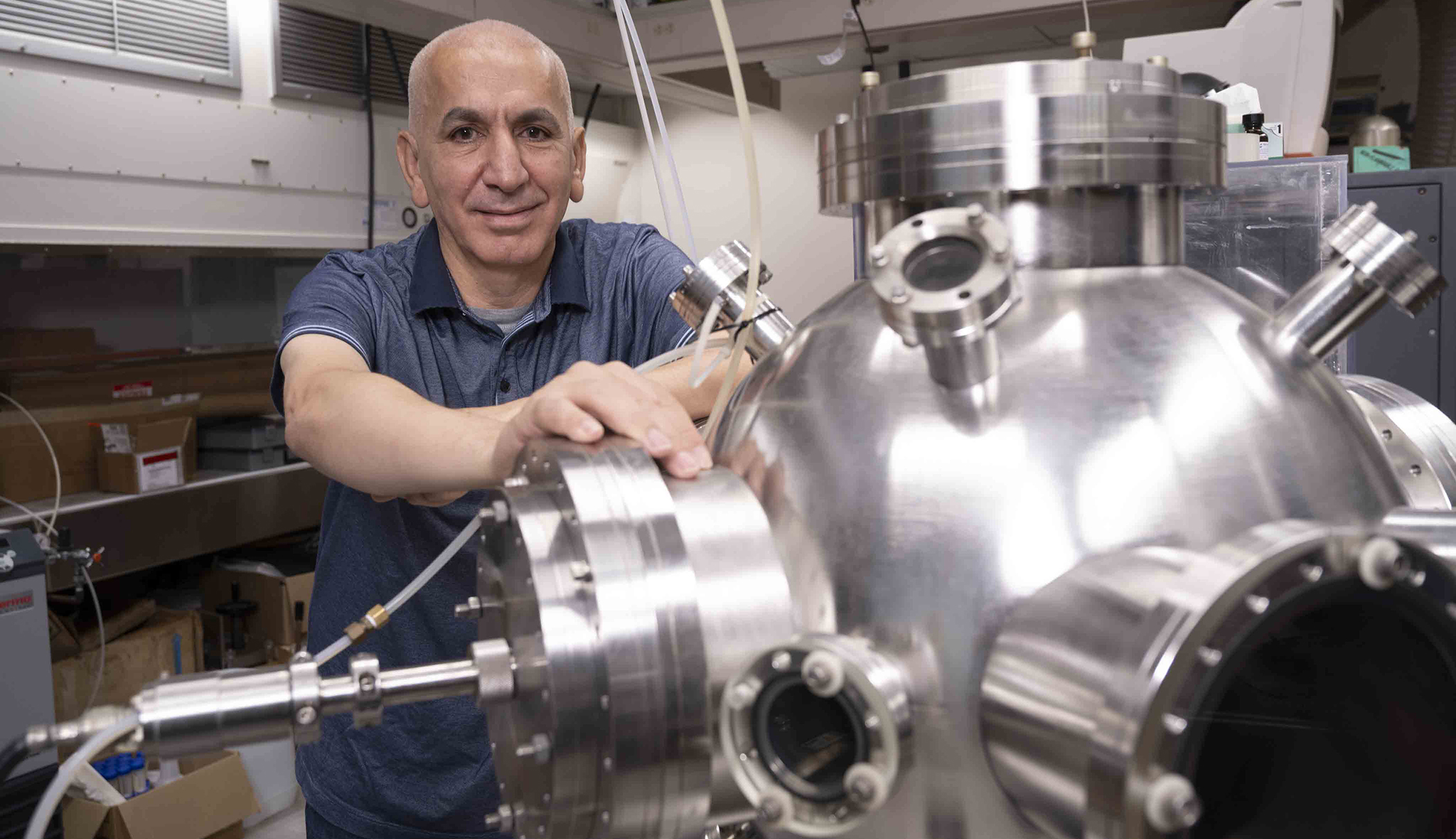National Science Foundation Awards Morgan State University $5 Million Grant to Establish Center of Research Excellence in Science and Technology
CREST to Serve as Multi-University Regional Hub Conducting Transformative Research in Advanced Magnets and Semiconductors
BALTIMORE — Continuing its significant investment in, and long-established support of, Maryland’s largest Historically Black College and University (HBCU) and State-designated Preeminent Public Urban Research University, the National Science Foundation’s (NSF) Center of Research Excellence in Science and Technology (CREST) program announced a $5-million grant to establish a new research and education hub at Morgan State University (MSU). Operating within the School of Computer, Mathematical & Natural Sciences (SCMNS), the center will bring together neighboring institutions to perform bold and innovative studies in advanced magnets and semiconductors. Funded over the next five years, the CREST Center at Morgan will include new graduate programs, collaborative seminars, symposia, and educational outreach opportunities in the Science Technology Engineering and Math (STEM) disciplines to produce highly talented graduates and diversify the high-technology workforce.
CREST joins Morgan’s robust list of scientific and interdisciplinary research centers and institutes addressing the needs and challenges of a 21st-century urban environment. The addition of this new center further augments the university’s efforts and aspirations to achieve the highest level of research —R1 Carnegie Classification.
“This CREST center will support research in advanced magnets and semiconductors, which are important to different modern technology sectors such as data storage, sensors, and actuators,” said Abdellah Lisfi, Ph.D., professor of Physics at Morgan State. “Under the auspices of CREST, MSU will strengthen its research collaboration and partnership with major research institutions to create a research hub in materials science and sustain competitive research nationally in this field. The CREST activities will help MSU to advance its research status to become an R1 research institution.”
Under the direction of MSU faculty from the departments of physics, chemistry and electrical engineering, three integrated research groups (IRGs) will focus on three emerging areas of fundamental and technological importance in the field of quantum materials: magnetoelectric materials, radiative and radiation-active quantum material heterostructures, and wide bandgap semiconductor quantum devices. The benefits of quantum materials and engineering pose significant potential in revolutionizing the way we live. According to a recent report published by the U.S. Department of Energy’s Office of Science, the study of quantum materials is an area of great interest, elevating its research to priority status and requiring an interdisciplinary focus on the sciences that rely on the use of sophisticated tools and methods for synthesis and manipulation.

Quantum materials are created from electronic interactions that start at the atomic and subatomic scale where solid matter loses its conventional makeup and takes on wavelike properties which result in unique and unexpected behaviors. To accomplish this, researchers must understand and control the interactions of electrons, and ions with matter. Some examples of quantum materials are superconductors and advanced magnets used to power energy-efficient electrical systems and support faster and more accurate electronic devices.
Recently, MSU received funding to launch the Center for Research and Education in Microelectronics operated within the Clarence M. Mitchell, Jr. School of Engineering’s Department of Electrical and Computer Engineering. Leveraging the interdisciplinary nature of the quantum materials study, the CREST researchers will work with existing centers at Morgan, as well as enlist the participation of postdoctoral students from multiple departments and collaborate with scientists from neighboring institutions. In addition to Dr. Lisfi, the research project will also include administrative, fiscal, and scientific contributions from co-principal investigators (Co-PIs): Hongtao Yu, Ph.D., provost and senior vice president of Academic Affairs, Ramesh Budhani, Ph.D., professor of Physics, Michael Spencer, Ph.D., professor of Electrical and Computer Engineering, and Willie Rockward, Ph.D., chair and professor of Physics and Engineering.
To further cultivate a pipeline of future professionals in the field of quantum materials and engineering, the center will oversee an education and outreach group, host summer institutes for high school students and science teachers; pursue the establishment of two new graduate degree programs—master’s and doctoral—in Materials Science and Engineering, with a focus on Quantum Materials; exchange researchers with partnering institutions to give lectures; and send students to external internships to expose them to new research experiences.
The NSF is an independent federal agency that supports science and engineering through the allocation of grants to entities seeking to perform transformative and revolutionary research. Their investments account for 25% of federal support to America’s colleges and universities.
About Morgan
Morgan State University, founded in 1867, is a Carnegie-classified high research (R2) institution offering more than 140 academic programs leading to degrees from the baccalaureate to the doctorate. As Maryland’s Preeminent Public Urban Research University, and the only university to have its entire campus designated as a National Treasure by the National Trust for Historic Preservation, Morgan serves a multiethnic and multiracial student body and seeks to ensure that the doors of higher education are opened as wide as possible to as many as possible. For more information about Morgan State University, visit www.morgan.edu.
# # #
Media Contacts:
Cheryl Stewart or Dell Jackson, for University PR
443-885-3022
Contact Information
Office of Public Relations & Strategic Communications
1700 East Cold Spring Lane
McMechen Hall Rm. 635
Baltimore, Maryland 21251
Contact Information
Office of Public Relations & Strategic Communications
1700 East Cold Spring Lane
McMechen Hall Rm. 635
Baltimore, Maryland 21251


